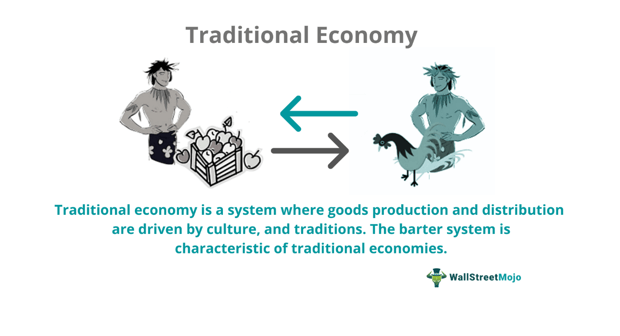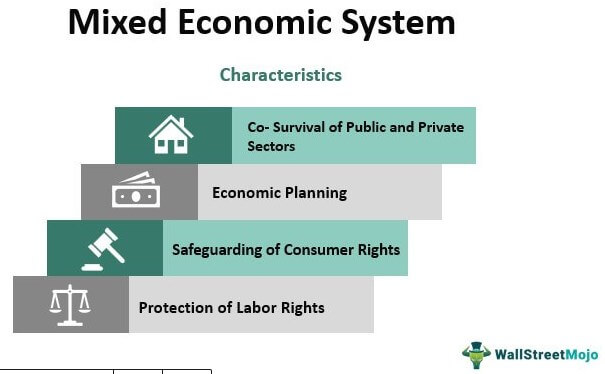What One Statement Defines A Traditional Economy?
What Is A Traditional Economy?
Keywords searched by users: What one statement is characteristic of a traditional economy Example of traditional economy, Traditional economy, Command economy, Why do you think the traditional economy has almost disappeared, Market economy, Market economy characteristics, What are the main differences among the three economic systems, which of the following is not a characteristic of a command economy?
What Are The Characteristics Of A Traditional Economy A Command Economy And A Market Economy?
Certainly, let’s provide a more comprehensive overview of the characteristics of traditional, command, and market economies.
A traditional economy is characterized by its strong emphasis on cultural traditions and customs. In this system, the production of goods and services is guided by the practices passed down through generations. It often involves subsistence farming, barter, and small-scale, localized economic activities. Traditional economies are deeply rooted in cultural beliefs and may resist change, even in the face of modernization.
In contrast, a command economy is marked by a centralized authority, typically the government, which exerts significant control over the production, distribution, and allocation of resources. This authority dictates what goods and services are produced, in what quantities, and at what prices. The government’s influence extends to planning and managing various sectors of the economy, often with the goal of achieving specific social or political objectives.
On the other hand, a market economy operates based on the principles of supply and demand. Here, economic decisions are largely decentralized, driven by individual choices and market forces. Prices are determined by the interactions between buyers and sellers in open markets. Competition plays a vital role in a market economy, encouraging efficiency, innovation, and entrepreneurship. The government’s role in a market economy is typically limited to ensuring fair competition and protecting property rights.
Additionally, there are mixed economies that combine elements of both command and market systems. In mixed economies, certain industries or sectors may be subject to government regulation and planning, while others operate in a more market-oriented manner. The balance between government intervention and market freedom can vary widely, depending on the specific goals and policies of each mixed economy.
In summary, traditional economies rely heavily on cultural traditions, command economies are characterized by centralized government control, market economies operate based on supply and demand, and mixed economies blend elements of both command and market systems to varying degrees. These distinct economic systems shape the way goods and services are produced, distributed, and consumed within a society.
What Is A Positive And Negative Characteristic To A Traditional Economy?
A traditional economy is characterized by its reliance on customs and long-standing traditions to answer critical questions about WHAT goods and services to produce, HOW to produce them, and FOR WHOM they are intended. This age-old approach can be seen as an advantage as it fosters a sense of cultural preservation and continuity, allowing societies to maintain their unique identities and practices over time.
However, one notable drawback of a traditional economy is its potential to stifle innovation and inhibit the adoption of new methods or ideas. Since decisions are predominantly guided by tradition, there may be limited room for experimentation and adaptation, hindering economic growth and efficiency. Consequently, traditional economies may face challenges in keeping pace with rapidly changing global markets and technologies, which can impact their overall sustainability and competitiveness.
Details 40 What one statement is characteristic of a traditional economy

:max_bytes(150000):strip_icc()/market-economy-characteristics-examples-pros-cons-3305586-final-JS-b59061972f22439799a2d421ff24c262-74b45ed5558c4b21a58ce66011ad21b5.jpg)

:max_bytes(150000):strip_icc()/mixed-economy-definition-pros-cons-examples-3305594-final-1779419a01ba432c8ded4e6291e634d3.jpg)
:max_bytes(150000):strip_icc()/communism-characteristics-pros-cons-examples-3305589_V1-cd0db6b1d47a4df6a44664c77594ebdf.png)
:max_bytes(150000):strip_icc()/Term-Definitions_Market-economy-Final-v2-2617a685cf7841249347d9cc37b65580.jpg)

Categories: Aggregate 99 What One Statement Is Characteristic Of A Traditional Economy
See more here: triseolom.net

The most common characteristic of a traditional economy is that it is family-centric. Another common characteristic is that the community obtains goods by hunting, fishing, or farming. Another characteristic is that traditional economies typically do not trade.Traditional systems focus on the basics of goods, services, and work, and they are influenced by traditions and beliefs. A centralized authority influences command systems, while a market system is under the control of forces of demand and supply. Lastly, mixed economies are a combination of command and market systems.The main advantage of a traditional economy is that the answers to WHAT, HOW, and FOR WHOM to produce are determined by customs and tradition. The main disadvantage of a traditional economy is that it tends to discourage new ideas and new ways of doing things.
Learn more about the topic What one statement is characteristic of a traditional economy.
- What is a Traditional Economy? | Characteristics, Advantages …
- Economic System – Overview, Types, and Examples
- Economic Systems – Flushing Community Schools
- Economic characteristics Definition | Law Insider
- Which is more important in a traditional economy, accumulati
- Traditional Economy: Definition & Characteristics – Study.com
See more: https://triseolom.net/category/world blog